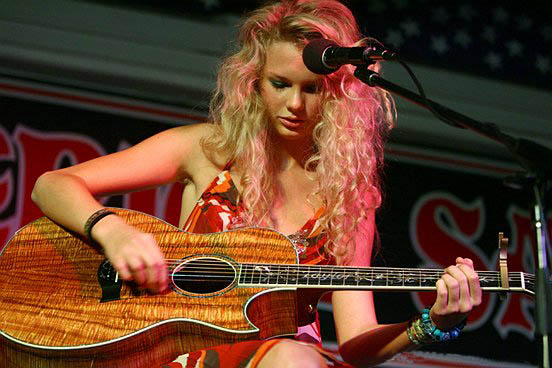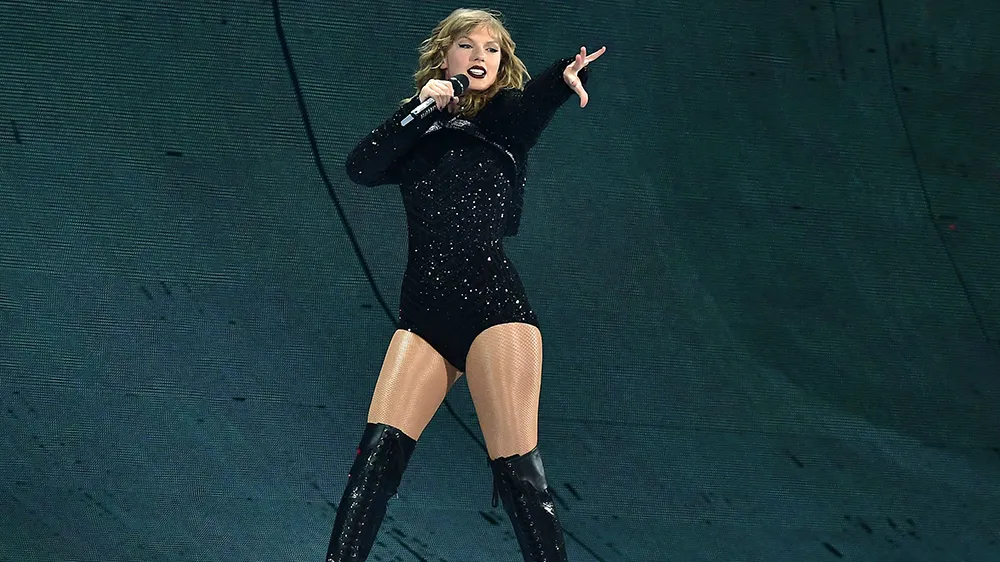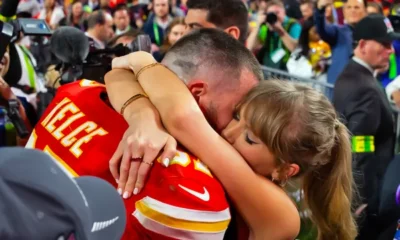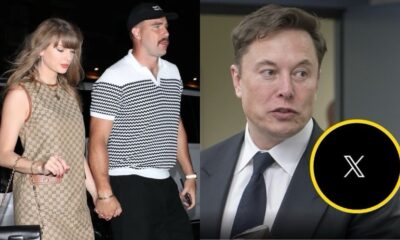CELEBRITY
BREAKING: Entire case studies could be written about the fated sale of Swift’s masters that eventually led the singer to re-record her first six albums originally released under that Big Machine contract: The saga reads like a soap opera….Full details below

To be a woman is to be compared: to one another, to a younger version of oneself, to a version of oneself who doesn’t exist. Even the most visible women don’t escape these comparisons, and in the early aughts, celebrity women were constantly under a microscope, most often for their appearance and more specifically for their weight.
Although 1989 was a mainstream triumph for Swift, she was still facing the same tabloid coverage that seemingly defined much of her early career. Gossip columnists loved to tear her down as a serial dater, criticizing her for writing only about her relationships and accusing her of dating to develop fodder for new music. Soon, that fodder would turn to her bubbling feud with Kanye West and an era of rumors that would shape her next project, Reputation.
1989 was also the album that turned me into a true fan—even if I didn’t feel like all the others.mI have a vivid memory of sitting in a friend’s bedroom, a group of five or six girls singing along to “You Belong With Me.” We were sophomores in high school, a year of mixing Sweet 16 parties and school dances with whatever alcohol we could steal from our parents’ liquor cabinets.
I felt out of place in that bedroom. Taylor Swift wrote lyrics that didn’t speak to my experience growing up in the far reaches of Philadelphia. Their small-town—and at times small-minded—themes turned me off in a way I couldn’t articulate as someone who spent weekends drinking in the woods and lusting after boys with lip rings and swooped hair instead of football players with shoulder pads and prom king crowns.
But I wanted to be different. I listened to pop punk and tried to flirt with boys using my music knowledge. It was the original pick-me girl playbook, but the boys never did pick me. There was always someone effortlessly cooler or prettier. I may have been the core demographic for Swift’s lyrics, but for a long time they sat squarely at the other end of the “not like other girls” spectrum, which is, I think, what made me avoid her for so long. In 2012, when I was 19 years old, I simply tweeted “Taylor Swift sucks”— a sentiment I held on to for at least another few years.
But when I was a senior in college, I finally caved. 1989 soundtracked my first-semester final exams, and it was on repeat for weeks after that. It was a few months after the album had been released, but only a week or so since Swift had taken the stage at the 2014 Victoria’s Secret Fashion Show.
Sitting on the scratchy blue living room couches found in student housing across the country, my roommates and I watched models strut their impossible bodies up and down the runway. Seeing the show was a masochistic act for any young woman who had grown up in the tabloid era.
Advertisement. It’s aspirational content, dreamed up by a largely homogenous group, not unlike the influencers we’ve grown so used to seeing splashed across our social media feeds who shill the same products in identical apartments.
























